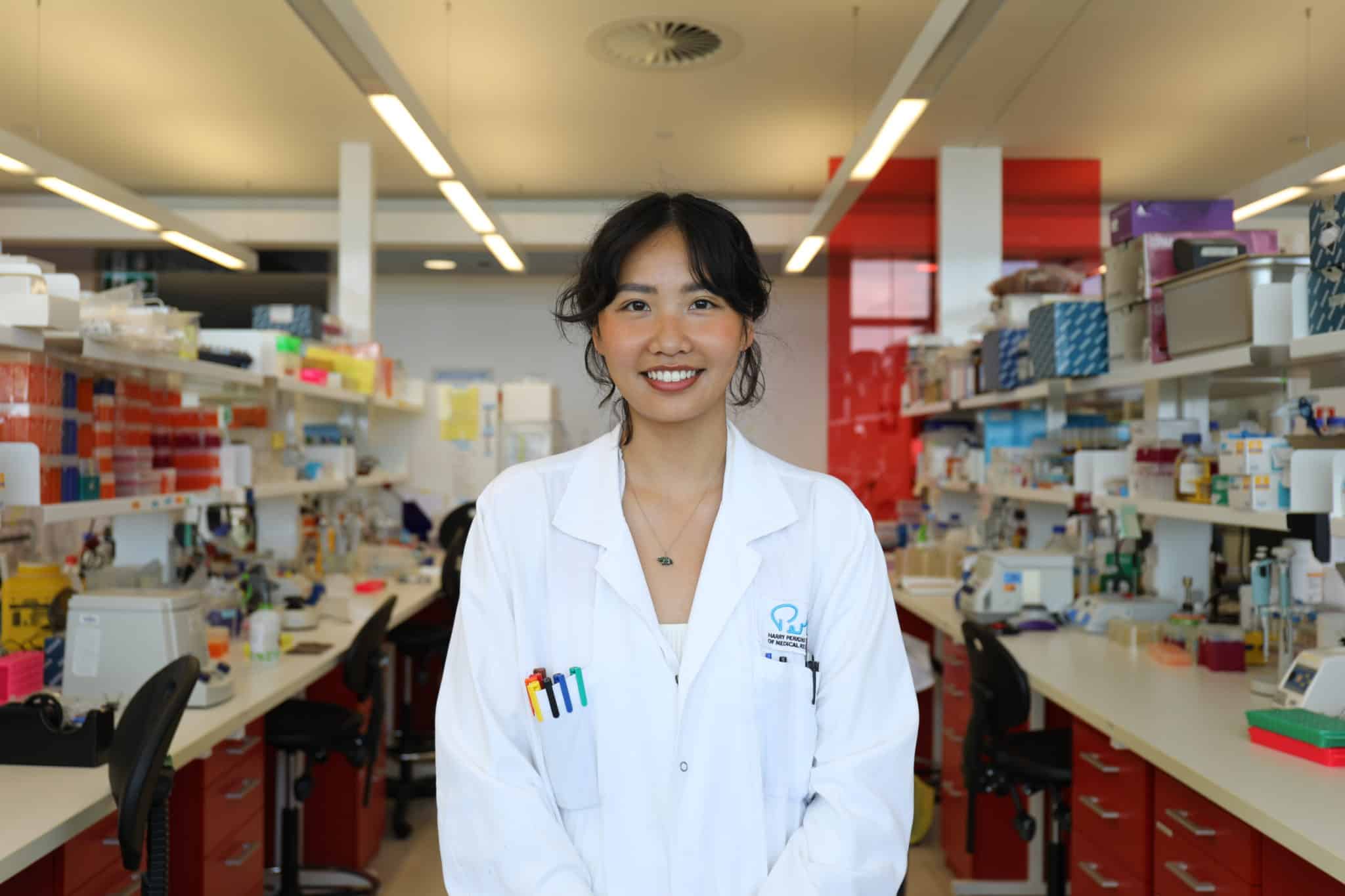
February 11 each year marks International Day of Women and Girls in Science. This day was officially declared by the United Nations General Assembly in 2015 in recognition of the ongoing mission to achieve full and equal access to and participation in science for women and girls.
In celebration of this empowerment of women and girls, we caught up with Perkins Research Assistant, Christina Vo to discuss her role here at the Perkins, and to talk about what advice she has for the next generation of women and girls who are looking to pursue a career in science.
Christina, can you explain your role and what you’re currently working on here at the Perkins?
I’m working as a Research Assistant in the Rare Disease Genetics and Functional Genomics, and the Preventive Genetics Labs, led by Dr Gina Ravenscroft and Professor Nigel Laing.
My current project focuses on developing therapies for neuromuscular diseases. I work extensively with patient-derived induced pluripotent stem cells (iPSCs). These are cells that we’ve reprogrammed from blood or skin samples that we get from patients. This gives them the ability to turn into different types of cells like brain cells, muscle cells or heart cells.
We can use these cells to investigate different features of diseases. By turning stem cells into different types of cells, we can also edit the DNA in these cells to remove potential disease-causing mutations using methods such as CRISPR. This way, we can then turn these cells back into healthy muscles. I think this is such an incredible testing model because it allows us to test new therapies in human cells without having to test in actual patients.
In the Gene Discovery space, our team can take patient DNA, search for anything that looks out of the ordinary and investigate what might be causing a disease. Eventually we hope this leads to diagnosis. What I really enjoy about the work is that it gives patients and their families answers. While working closely with the diagnostic labs, any disease-causing changes that we find in a patient’s DNA are shared with the diagnostic team. This way, similar features can be picked up on for other patients – improving the chances of more people being diagnosed.
Did you always image a career working in genetics?
I’ve always been passionate about science but didn’t always set out to pursue a career in genetics specifically. Though, I’m firm believer of giving everything a go before deciding if something isn’t for me.
In my second year of university, when I first learnt of CRISPR technology, I remember thinking at the time that it was one of the coolest things I’d come across in my studies. That lead me to pursue my master’s degree in Biomedical Science in Epigenomics and Genetics, which I completed here at the Perkins last year in the Lister Lab.
Do you have any advice for the next generation of women and girls who are looking to pursue a career in medical research, or science in general?
My biggest piece of advice is to be confident and to push past that fear, whatever it may be. Stay connected to your ‘why’ you wanted to be in STEM in the first place, especially when things get tough, because it will.
For many, it’s a difficult decision to make pursuing what is traditionally a more male-dominated industry. But I think what’s more challenging is sticking to that path as you’re continually faced with opinions that are implicitly biased towards certain false-gender stereotypes. To that, I’d advise young girls and women to recognise that biases still often exists but to not let it take away your sense of self-worth or limit what you’re capable of. Demand attention and be so good that no one can refuse you.
Lastly, I recommend forming and fostering meaningful relationships throughout your career. Identify your role models, people who truly inspire you. Surround yourself with supportive colleagues and extend that support to other women working in STEM. There are plenty of us out there. I’ve been inspired by so many amazing people in the Perkins alone.
What’s in store for you next?
As I mentioned before, my current role has been so rewarding. What our team does really has an impact on patients and their loved ones. Because of this, my next step is to pursue a career in medicine and continue to work towards a path that focuses heavily on patients and patient care.
But for the moment, I’m loving my work, my team, and my role here as a Research Assistant. I know that, wherever my career takes me, I will come back to the field of medical research again.
